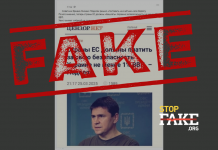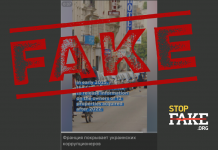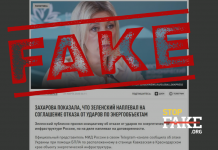It is not often that Stopfake analyzes TV shows, especially French television programs. Ukraine: Masks of revolution, a documentary by French journalist Paul Moreira has caused a heated discussion in France and in Ukraine about the film’s content, its methods and ideology, all of which in many ways mirror the ideology traditionally put forth by pro-Russian channels.
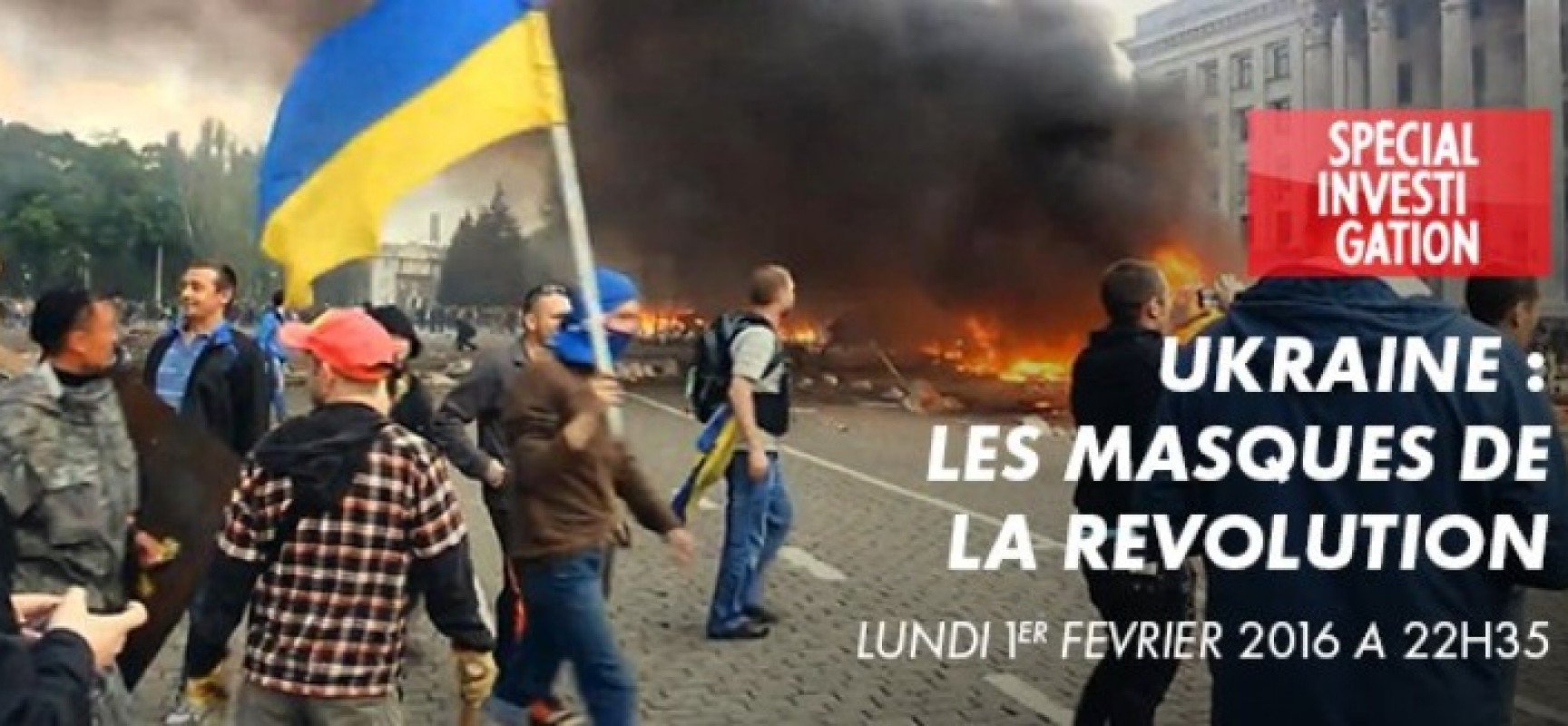
Although P. Moreira claims to present the facts impartially and allows different sides to have their say, nevertheless the documentary distorts recent events in Ukraine. As many journalists have already pointed out, Moreira builds his story on many factual mistakes.
But if we want to deconstruct fakes, then we must begin with the fake being propagated by Ukrainian radicals, who without much thought, accuse Moreira of selling out to the Kremlin. There is absolutely no evidence of this. His film, as many other French documentaries, was largely financed by National Cinema and Animation Center (CNC), a public institution, financed by the French Ministry of Culture.
Furthermore, judging from Moreira’s previous work, it is difficult to accuse him of harboring pro-Russian sympathies. Moreover, the topic of nationalism in Ukraine or the Odessa tragedy (some 40 people died during clashes in May 2014), are absolutely legitimate topics to be examined. It is rather the methods, theories and loaded language of the film that give us pause, practices favored by Kremlin financed media and practices that StopFake campaigns against. American supported Nazis organized a coup in Ukraine, the indisputability of the Crimea referendum, the killings in Odessa orchestrated by the fascists in Kyiv – all these cliché are present in Moreira’s film, which all too often turns to conspiracy theories to explain the crisis that engulfed Ukraine.
The conspiracy theory discourse is a well-known journalistic technique, Moreira repeats it both in the beginning and the conclusion of the film. “To heighten the drama or perhaps for military reasons, the ‘free world’s’ mainstream media hid the truth about the Maidan.” This is a common propaganda technique in building a story which purports to be “the sacred truth.” And it is on such a claim that this documentary is constructed.

There are many factual errors in this documentary, which could have been avoided had the facts been honestly considered. French journalist Sebastien Gobert, who has lived in Ukraine since 2011, wrote in his blog that as a French journalist, he feels insulted that his colleague, who up to now has had a good reputation, presents a black and white version of events, discarding all standards of western journalism by the wayside. Gobert is worried that Moreira’s film will diminish the credibility of French journalists in Ukraine.
Two open letters were published in response to Moreira’s film, one signed by journalists working in Ukraine, the other, signed by writers, intellectuals and a former ambassador was published in the French daily Le Monde.


French journalists also accuse Moreira of manipulating images: “How can a silent YouTube video showing a neo-Nazi march which took place after the Maidan be shown as if it was part of the revolution? How can you speculate about which organizations these marchers belong to?”
As Benoît Vitkine points out in his Le Monde article “Moreira makes the ultra-right the architects of the revolution, regardless of the fact that they were only one of the militarized groups on the Maidan. He portrays them as the main political force, despite of the fact that their election results were very low. Oleh Lyashko’s Radical Party for example received only 7.44% only 21 parliament seats, the Svoboda party didn’t even achieve the 5% minimum required and managed only 6 slots based on elections in majority districts, this in a parliament that has 450 deputies.

In the beginning of the documentary the Azov battalion is shown marching, these images are intended to illustrate the presence of neo-Nazis on the Maidan. This “illustration” is baseless because the Azov battalion was formed after the Maidan when the separatist war had already begun in eastern Ukraine, but it does show how negligent Moreira is with facts and dates.
Moreira doesn’t mention the conflict in the Donbas nor the role the volunteer battalions played in that conflict. He does however claim that society’s and the government’s tolerant attitude toward these battalions shows that Ukraine is thoroughly fascist. He completely ignores the fact that at one time, these battalions were the only battle ready force in the region, a time when the Ukrainian army was still being organized.
Since then, these battalions have been integrated into the Ukrainian armed forces and are subject to military command, particularly as regards weapons availability. Control over weapons traffic is a challenge for the Ukrainian government (and demands very serious investigation) but the presence of weapons has nothing to do with maintaining law and order on the streets of Kyiv. Law and order on the streets of Ukraine’s capital is maintained by the city police who are subordinate to the Interior Ministry.
Paul Moreira skips from the end of the Euromaidan to the Crimean blockade, he shows a check point on the border with Crimea and claims that “Right sector has taken upon itself the right to starve Crimeans.” However, the Crimean blockade was initiated by Crimean Tatars, a nation persecuted by Russia since the annexation of their territory and driven to launch the blockade on September 20, 2015 in order to bring attention to their plight. Right Sector activists later joined the blockade. It should be noted that this initiative which is supported by Kyiv is not “starving” Crimea, Russia has found a way of providing for Crimea.

Moreira says almost nothing about the annexation of Crimea, he affirms that “after the revolution, Crimeans overwhelmingly voted in a referendum to unite with Russia”. Two years later it is no longer a secret that Russian takeover of Crimea was the goal of the annexation. The referendum was held at a time when the streets were filled with masked armed men. It was later uncovered that the “little green men”, armed soldiers without insignia who captured the peninsula were in fact Russian soldiers, something that even Vladimir Putin admitted to in the film “Crimea, the way home”. And finally, there is no word about human rights violations in Crimea, something that is amply documented by the OSCE and the Crimean Human Rights Field Mission.
From the Crimea blockade Moreira returns to May 2014, the tragic events in Odessa. Despite wide criticism of his treatment of this episode, Moreira insists that the organizers of the events that ended in tragedy were Ukrainian nationalists and completely ignores the radicalism of the other parties involved. In the open letter to Le Monde the signatories point out that “Aleksey Albu is not a communist activist from Odessa nor an eastern refugee, but one of the leaders of a radical wing of the Ukrainian communist Party called “The Struggle” known for its xenophobic, homophobic and antisemitic views. Albu is a spinoff of the many fascist movements active in today’s Russia, and not a representative of Ukraine, as Moreira tries to portray him. Moreira also fails to mention that there were many local initiatives, such as Odessos, which condemned the tragedy at the Trade Union House and provided medical and legal assistance to both sides of the conflict.
There are several references in the film to discrimination against Russian speakers and the Russian language. Moreira even claims that the Russian language was banned (20:40), and that Russian speakers had become second-class citizens. The Russian language was never banned. With regard to Russian as a state language, pro-Russian political parties, Viktor Yanukovych’s Party of Regions included, have used this topic as a pre-election bargaining chip for decades. These promises have never been kept, but rather were simple populist rhetoric to win the votes of the Russian-speaking and pro-Russian population.
In her blog for the Liberation newspaper, Anna Jaillard Chesanovska, a French journalist of Ukrainian origin and one of the film’s interpreters writes about how the editing of the film was manipulated. While not justifying the actions of some the main characters in the documentary, such intentional editing raises credibility and objectivity issues concerning Moreira’s entire investigation. “For me the concept of nation and of being Ukrainian means a blood and spirit bond between the dead, the living and the unborn” says radical activist and politician Ihor Musiychuk in the film. Moreira was thrilled with this phrase and was only too happy to throw Musiychuk’s next sentence “one doesn’t have to be born Ukrainian or have Ukrainian blood to be a real Ukrainian” on the editing floor, she writes.
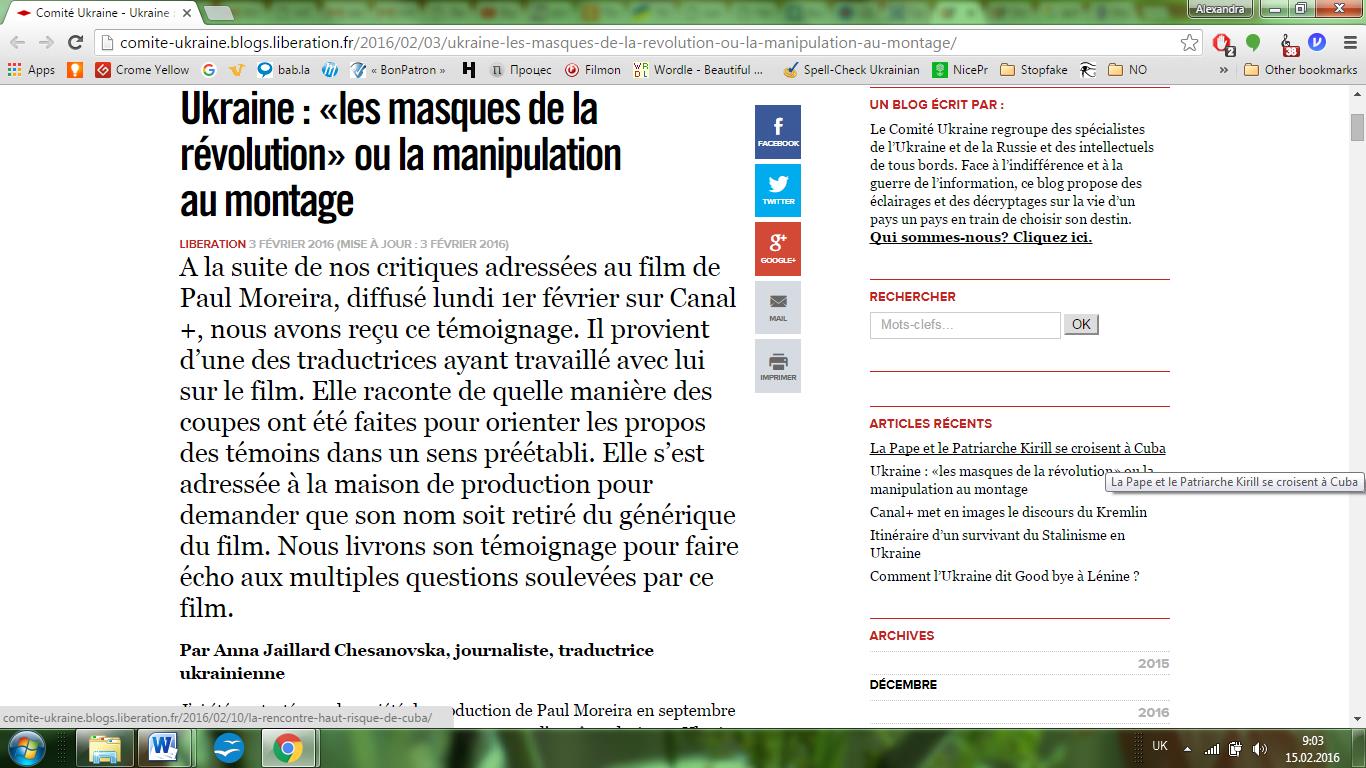
Further pushing the conspiracy theory idea Paul Moreira shows footage of Americans attending the Yalta European Strategy Forum as proof of US orchestration of the conflict in Ukraine. But, as rightly noted in the open letter published in “Le Monde”, “The problem is not to think badly about America, often she deserves this, the problem is to think that America is evil.”
Reacting to the criticism directed at his film, Paul Moreira wrote in his blog on Mediaport “I did not expect such a level of and hysteria. One Ukrainian website called me a terrorist, financed by Russian secret services. People are calling for the film to be banned. Even the Ukrainian ambassador tried to pressure “Canal Plus”. That’s what surprised me the most. I think that Ukrainians must urgently reassess their attitudes to their paramilitary groups. As my film shows, they are the greatest danger to Ukrainian democracy. Refusing to acknowledge the obvious because “these are machinations of Russian propaganda”, we in turn become propagandists. And we lose. Not because we lie, but because we are full of good intentions. Never forget that these denials lead to the worst conspiracy theories. ”
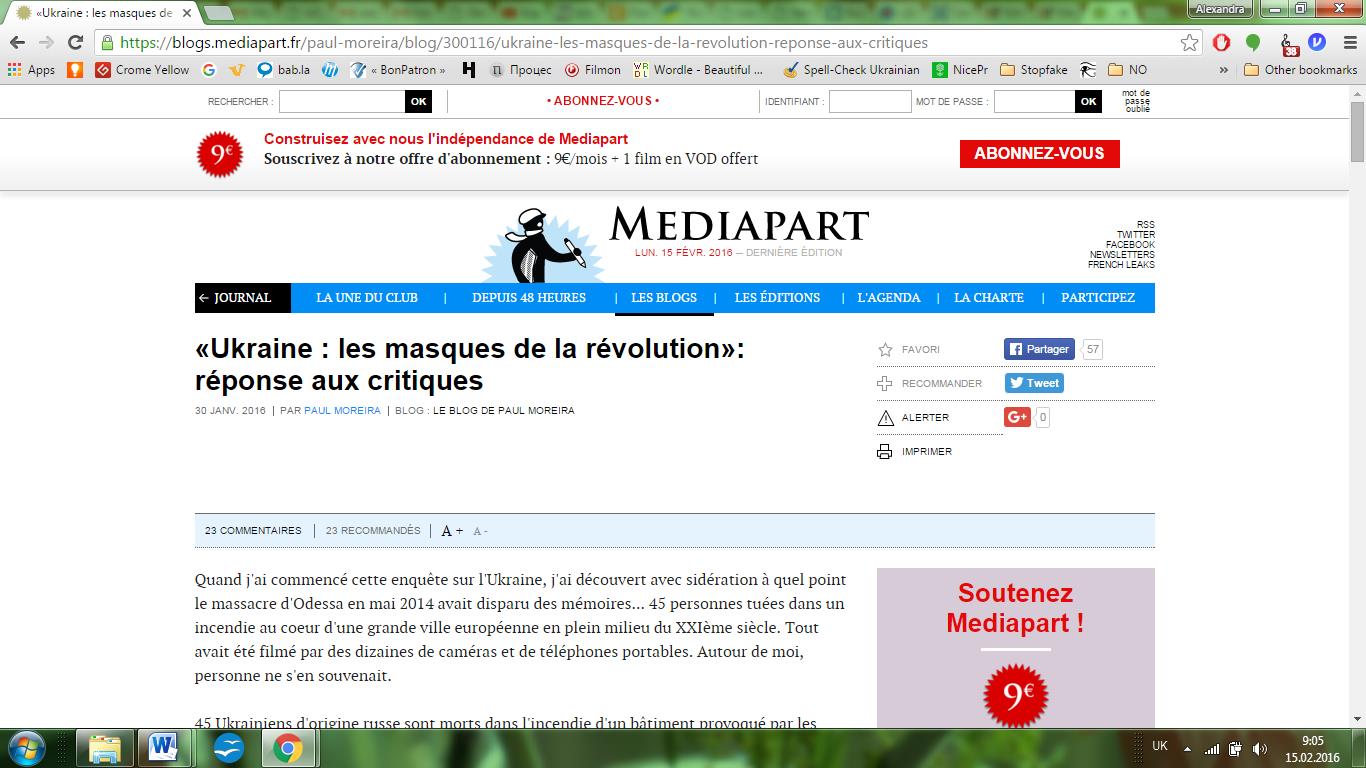
Recently it also became known that some of the footage Moreira used in his documentary was lifted from All Things Ablaze, another documentary about the Maidan revolution. Yulia Serdiukova, the film’s producer announced this on Hromadske television (3:02-7:11). Moreira used about a minute’s worth of All Things Ablaze footage without permission, which further raises questions about his professional ethics.
To some extent one can say that Paul Moreira is right to question the threat to Ukrainian democracy that the radical right poses, however, the methods and manipulation that he resorts to in raising attention to these issues, turn his questioning into propaganda.



